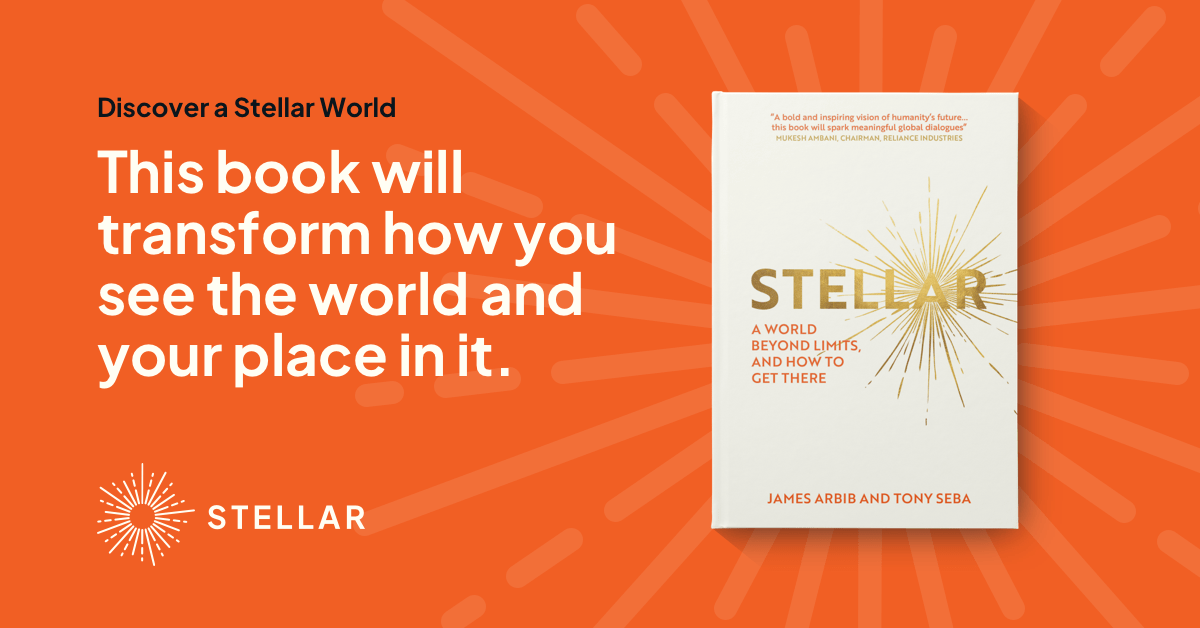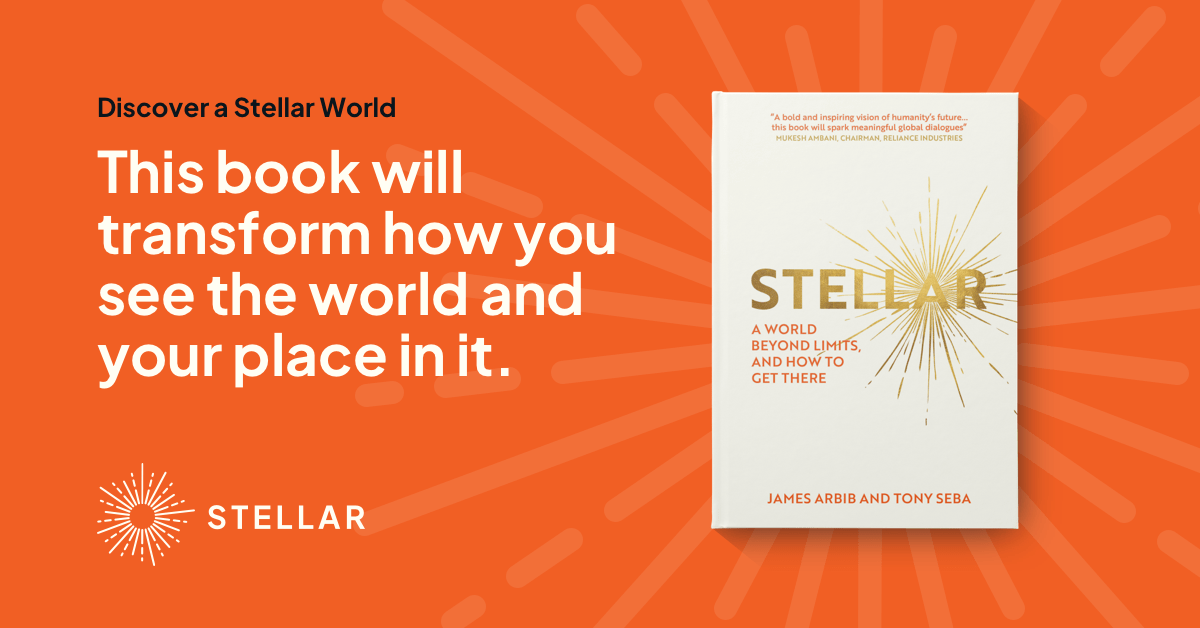Stellar, a very convincing vision of how we can move towards a Solar Punk world.
Stellar, a very convincing vision of how we can move towards a Solar Punk world.

Discover a Stellar World

Just finished the stellarbook, by James Arbib and Tony Seba (from RethinkX). They make a very interesting case on how we can move from our current extractive societies to one of abundance. It touches on many themes that are well known in the solar punk community, still it brought together a clear overview and model of where we are now and how to get to a better world.
I was wondering if anyone here has read it as well. And what your take is.